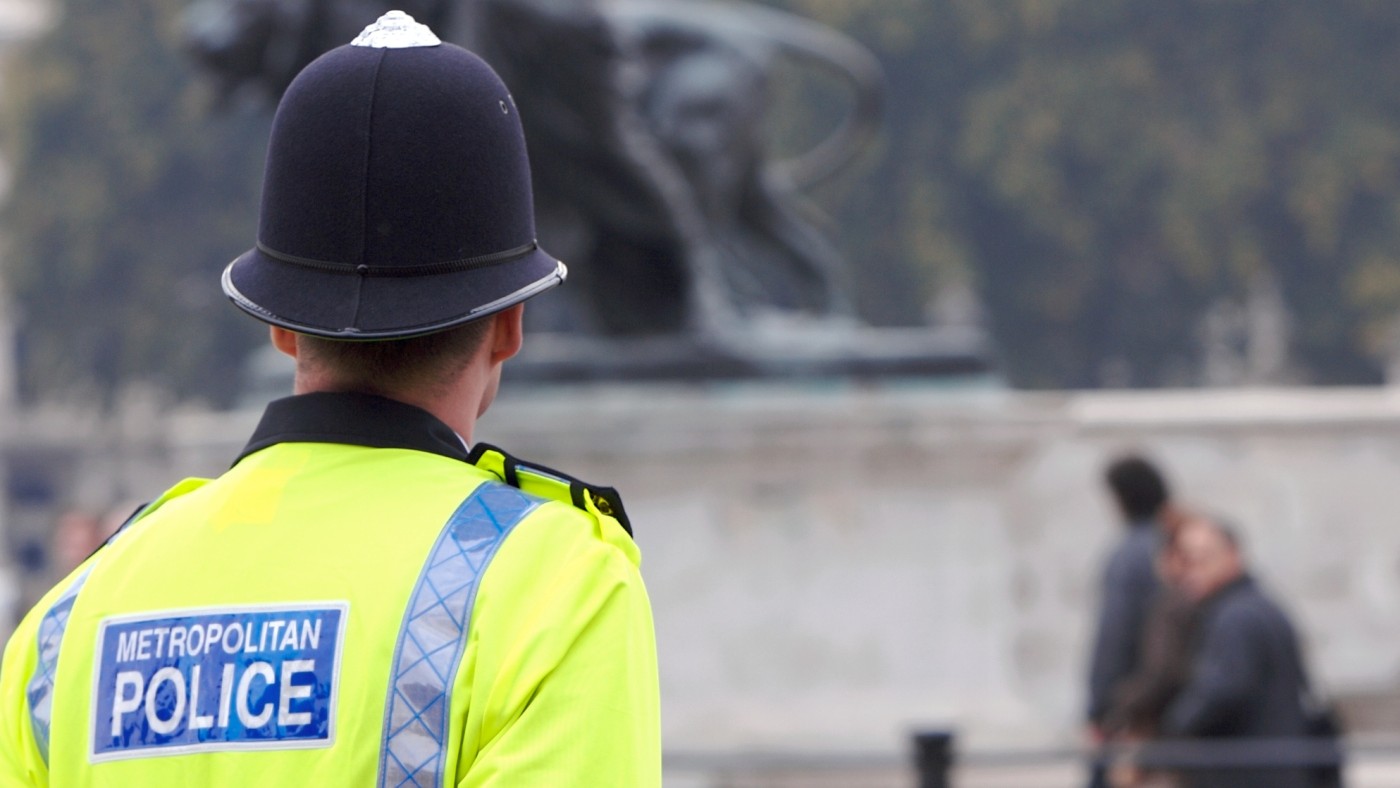The debate over police and mental health crisis care
Commissioner says current approach to crises is “untenable”

A free daily email with the biggest news stories of the day – and the best features from TheWeek.com
You are now subscribed
Your newsletter sign-up was successful
The Metropolitan Police will no longer attend emergency calls linked to mental health incidents from later this year, the force’s commissioner has confirmed.
In a letter to health and social care bosses seen by The Guardian, Mark Rowley has stated his intention to order officers not to attend such incidents from 31 August onwards.
Rowley has argued such a move is required as officers are being “diverted from their core role of fighting crime”, the newspaper added, with the commissioner stating the current situation is “untenable”.
The Week
Escape your echo chamber. Get the facts behind the news, plus analysis from multiple perspectives.

Sign up for The Week's Free Newsletters
From our morning news briefing to a weekly Good News Newsletter, get the best of The Week delivered directly to your inbox.
From our morning news briefing to a weekly Good News Newsletter, get the best of The Week delivered directly to your inbox.
But questions have now been raised about what the change could mean for the police, 999-call responses and mental health services more generally.
‘Potentially alarming’
Zoe Billingham, a former inspector of constabulary who is now chairwoman of NHS mental health services in Norfolk and Suffolk, told BBC Radio 4’s Today programme of her increasing concern at the “terrible quandary” facing families with a loved one struggling with their mental health.
Billingham suggested that police are the only agency for those suffering a mental health crisis, and warned of a potential “vacuum” once this service is removed, stating the policy is “potentially alarming”.
Others concurred, with deputy charity boss for Rethink Mental Illness, Brian Dow, having told The Times it is “not appropriate” for the Metropolitan Police to impose an “artificial deadline and threaten to walk away”. He argued such a move would heighten the risk of those in mental health crisis being “left in limbo” as they look for support.
A free daily email with the biggest news stories of the day – and the best features from TheWeek.com
A former Met superintendent agreed, telling ITV the policy would cause “a lot of anxiety”. “To pull out now I think is a dereliction of duty,” he told the broadcaster, “I think it’s extreme, it’s unnecessary”.
“Police and health services struggle to serve everyone with limited resources”, and concerns linger about what the decision could mean, said Sky News’s Martin Brunt.
He questioned the notion of mental health patients securing a “better deal”, and asked “what other patients will suffer?”.
‘Too long spent babysitting’
Nationally, officers spend “a million hours a year waiting for mental health patients to be assessed”, said the Daily Express, and it is this that Met Commissioner Mark Rowley appears to argue is a waste of time.
Writing for the newspaper, Andy Bell, the chief executive of the Centre for Mental Health, said the police “should not be the default responder to a mental health emergency” and called for “greater investment” to help Britons “before they get to crisis point”.
Rowley has insisted the Met is “failing Londoners twice” by sending police to deal with mental health crises, and in not using the force’s time in the most efficient way.
In the letter to health and social care services, he added that allowing the “status quo to remain” would mean he is “not setting up officers to succeed”.
Rowley is modelling the Met Police’s latest actions on a scheme first implemented by Humberside Police in 2020, entitled Right Care Right Person, which tasks health professionals with responding to mental health crises instead of the police.
An inspection undertaken by His Majesty’s Inspectorate of Constabulary, Fire and Rescue Services found the Humberside force has saved “1,100 police hours per month” by doing so, The Independent reported.
The newspaper added that the report said that the public received “more timely care from the most appropriate care provider”.
Ken Marsh of the Metropolitan Police Federation argued officers spend too long “babysitting” people, The Mirror reported, although he did concede “it is not for the commissioner to say whether my colleagues can or can’t attend”.
Rowley “wants to prompt national debate about what society regards as the priorities for forces,” wrote the BBC’s Mark Easton, “and whether there needs to be greater focus on other public services’ responsibilities”, but also questioned “what are the police for?”.
In a statement, the Met said that while police are “compassionate and highly skilled, they are not trained to deliver mental health care”. The force confirmed officers will continue to respond “where there is an immediate threat to life”.
Rebekah Evans joined The Week as newsletter editor in 2023 and has written on subjects ranging from Ukraine and Afghanistan to fast fashion and "brotox". She started her career at Reach plc, where she cut her teeth on news, before pivoting into personal finance at the height of the pandemic and cost-of-living crisis. Social affairs is another of her passions, and she has interviewed people from across the world and from all walks of life. Rebekah completed an NCTJ with the Press Association and has written for publications including The Guardian, The Week magazine, the Press Association and local newspapers.